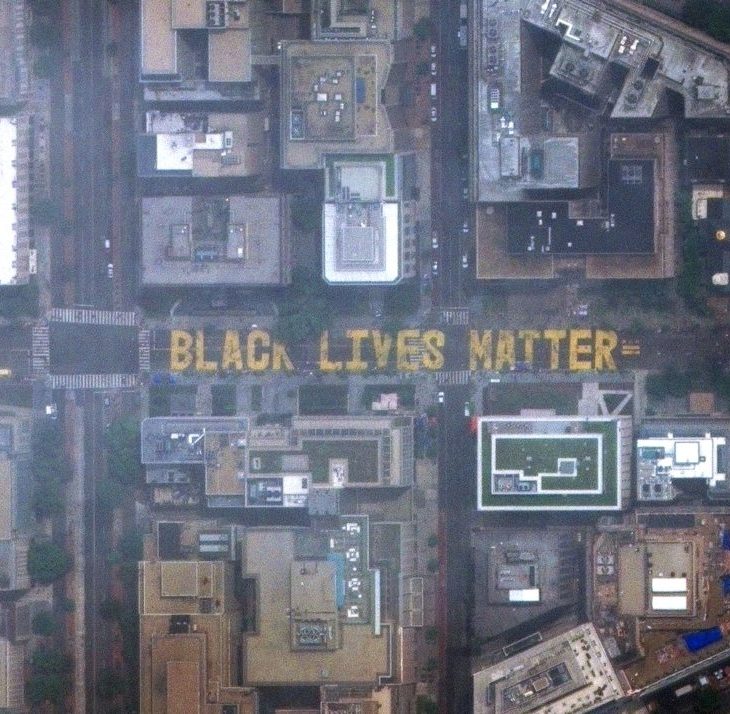Wait: So Racism Isn’t Dead?
December 1, 2020

Kanika Magee is the Assistant Dean for Student Affairs and the Special Assistant for Interfaith Programming at Howard University, a leading HBCU in Washington D.C., and a 2020 Interfaith America Racial Equity Fellow.
In the aftermath of George Floyd’s public murder, a global community of varied races stood up and declared its concern over racial injustice in America. As a Black woman watching those gruesome minutes, I thought as I always do of my husband and son and nephews and cousins and extended family and friends – each of whom could easily have shared George Floyd’s fate. None of my friends in Black America were stunned by the callous footage of George Floyd’s murder, though each was deeply hurt. What is interesting is that a large part of America (I’d say White America) – and the world – was stunned. Even though it’s a story that has been repeated through the voices of Eric Garner and Tamir Rice in the 2000s…rewind to Rodney King in the 1990s…to Emmitt Till in the 1950s and hundreds of named and unnamed Black men and women in between – and since.
I have been deeply touched and inspired by what has resulted. Yet, I have been struck by the fact that what happened to George Floyd was actually stunning to people. For as long as I have been alive my community has lifted its chorus to condemn police brutality, racial injustice, discrimination, inequality, and the many explained and unexplained – yet typically unindicted – murders of Black girls, boys, women and men. We know their names and live with them in our deepest nightmares and fears – and repeat the stories of those in our own families and communities who died – or disappeared – mysteriously. Yet, folks were stunned and have erupted into weeks and months of protests, followed by statements from corporate CEOs and adjustments to company diversity quotas and hiring practices, ultimatums to football teams (Washington’s former Redskins) to change their names, and petitions for Disney World and Disneyland to overhaul a ride themed after “Song of the South.” All of a sudden, America, and in honesty I must say White America, realized our nation and its practices and economy and structure – from athletics to children’s theme parks to corporate boards – reflect a deeply entrenched racism that would allow George Floyd to die on a public street at the hands of those sworn to serve and protect while being videotaped by passersby.
All of a sudden, the White people around us awoke and agreed that racism really exists in our modern, post-Obama/post-racial context. It feels as if many members of White America have stood up and said, “So, you mean the Black people weren’t just being paranoid, melodramatic, or pulling ‘the race card?’ They weren’t just making it up all along – seeing connections and conspiracies where none existed?”
As we face the triple threat of George Floyd/#BlackLivesMatter, COVID-19 and its disparate impact on Black people and other communities of color, and a presidential election that reflects the deep divide of our nation (78M in one camp and 73M in another) partly attributable to race, I, like many have asked: What next?
I will tell you, one of my many big concerns (and as a Black woman in America, I have many), is that what’s next is that the giant that was awakened by George Floyd, the giant that ignored us when it was Michael Brown or Breonna Taylor or Trayvon Martin who died will fall back into disbelief and dismissiveness. So that when our Black community reacts to the COVID vaccine by pointing to the Tuskegee Experiments and disparities in access to and quality of healthcare in America – we will be met with the same silence and callous disregard that has defined the centuries since slavery ended. When our Black voices assert that schools in our communities are typically inferior, food deserts are more likely to be found in our neighborhoods, recruitment and salaries of our university-educated students reflects lower salaries and less campus visits, that our communities and businesses are still more likely to be red-lined, we will be met with the same indifference and lack of response that has allowed the divide to continue so many years after Reconstruction.
I am deeply concerned that the dramatic appeal of George Floyd as he called for his mother will soon fade into a whisper and distant memory and the voices of the many who lay on the streets of poverty, inequality, stereotyping, and dismissal; those who are held to the ground without care as they die at heightened rates from health disparities and police brutality; those who are pushed to the ground in education systems that fail to educate, corporate structures that may hire but don’t promote, and banking systems that won’t finance them as entrepreneurs, will be drowned out by the same status quo that made his death so shocking in the first place.
End Note: While this piece was not written directly about faith, it reflects the cultural reality that guides, informs, and feeds my faith. In early interfaith conversations, I was told that race was not relevant – to shelve that part of my identity and to engage in a conversation about valuing people’s faith identities. The two are deeply intertwined, and are often deeply embedded into cultures and communities. I cannot fully approach my faith without the context of my racial experience – and I shouldn’t be asked to.
Share
Related Articles
American Civic Life
Is This a Time for Bridgebuilding? 5 Leaders in Conversation
Racial Equity
Immigrant Faith Communities On Rooting Out Anti-Black Racism
American Civic Life



